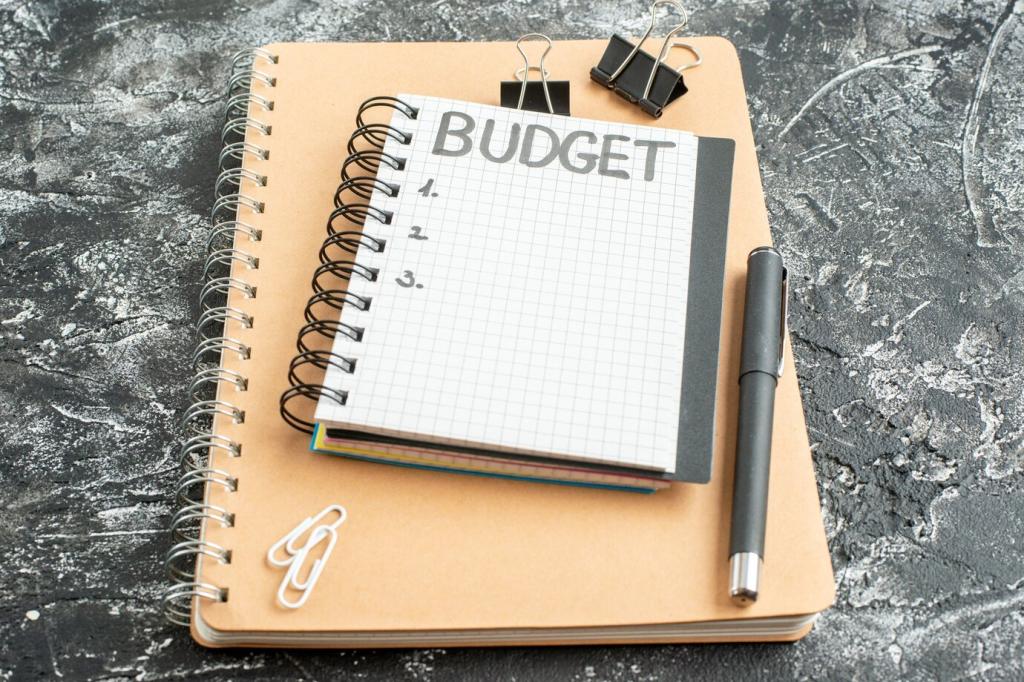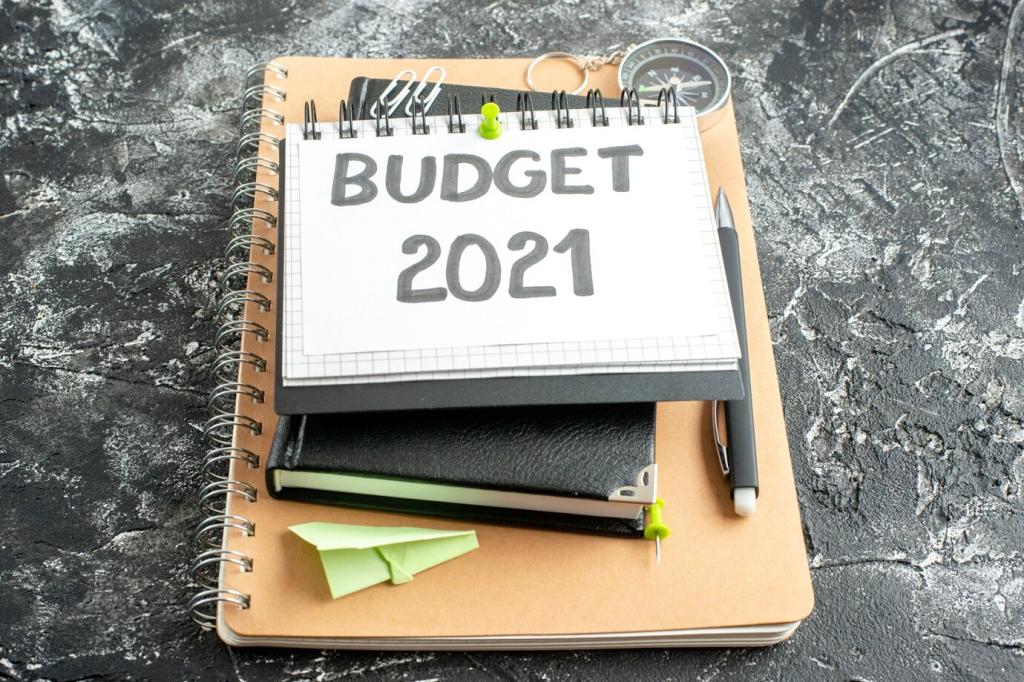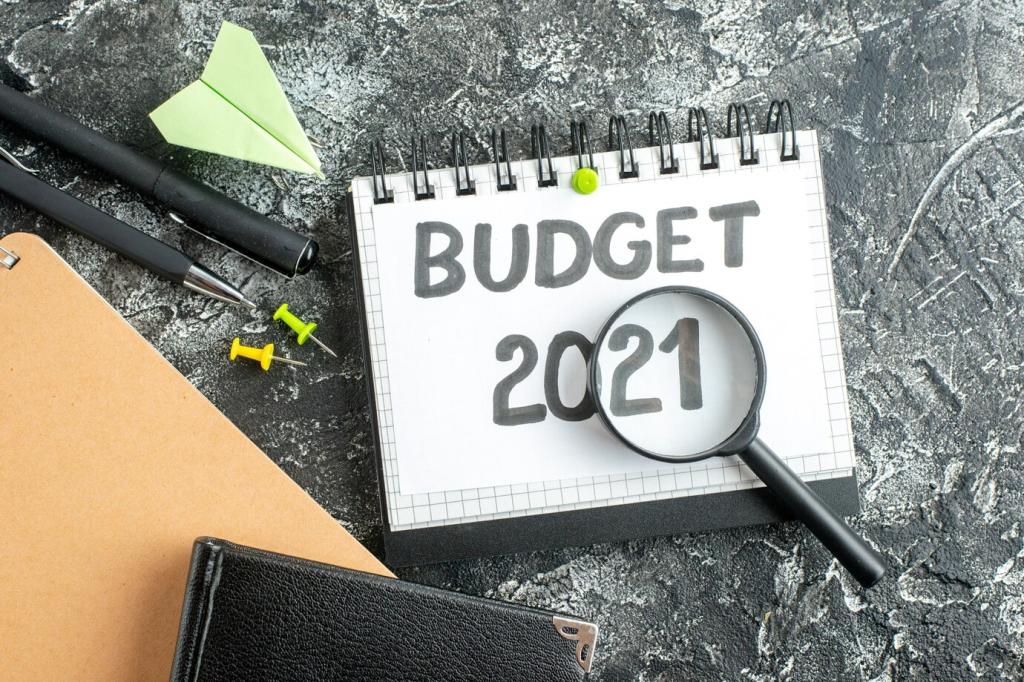Step-by-Step Guide to Setting Financial Goals
Start With Your Why
List the five values that matter most—security, freedom, family time, adventure, learning. Match each value to one concrete financial outcome. This alignment keeps goals emotionally meaningful, resilient during setbacks, and easier to prioritize when decisions feel complicated.
Start With Your Why
Write a one‑page story dated one year from today describing a day in your financially confident life. Include where you are, what you’ve paid off, what you’re saving, and how it feels. Post it visibly and revisit during weekly reviews.
Start With Your Why
Pick two reminders—a photo of your dream trip and a note about stress‑free bill payments. Place them near your workspace. When urge spending hits, pause, look, breathe, and ask whether this purchase serves your bigger financial purpose.



Make Goals SMART and Inspiring

Change save more to save 3,000 dollars for an emergency fund at Online Bank X. Specify account, purpose, and rules for using it. Specificity reduces decision fatigue and clarifies exactly what success looks like in daily actions.
Short‑Term Stabilizers
Target a starter emergency fund and any high‑interest debt first. Stability protects every other plan from derailment. One reader, Maya, paid off a 23 percent card in five months and finally stopped backsliding whenever car repairs appeared unexpectedly.
Mid‑Term Momentum
Next, fund goals like a home down payment or career training. These unlock future cash flow or opportunity. Sequence contributions automatically after minimums and emergency savings so progress continues without constant manual decisions or emotional bargaining.
Long‑Term Builders
Retirement and generational wealth need time, not heroics. Even modest automated contributions compound meaningfully. Start now, then step up amounts after each raise. Document the order in a one‑page plan so your priorities stay crystal‑clear.

Reverse‑Engineer the Numbers
If your six‑month goal is 3,000 dollars, divide by months, then by paychecks. Create automatic transfers on payday. Small weekly transfers often feel painless while keeping energy high. Convert surplus from cut subscriptions straight into goal contributions.
Automate What Matters
Set up direct deposit buckets—bills, savings, investments, fun. Paying yourself first ensures goals are funded before lifestyle expands. Javier used this method to build a 1,500 dollar cushion in ten weeks without feeling deprived or obsessively tracking receipts.
Plan for Friction
Add a modest buffer category for surprises and a cooling‑off rule for impulse purchases. Friction isn’t failure; it’s expected. A few protective rules help you stay consistent without perfection, especially during busy months or stressful seasons.

Weekly Money Date
Schedule a 20‑minute check‑in. Update balances, mark milestones, and choose one micro‑action for the week. Invite a partner or friend for accountability. Share your weekly action in the comments to inspire another reader starting today.

Monthly Metrics That Matter
Monitor savings rate, debt payoff pace, and net worth trend. Avoid vanity metrics like raw income. If targets lag, adjust either the amount or deadline, not your commitment. Post your monthly snapshot where you can see it effortlessly.

Quarterly Recalibration
Life shifts—new jobs, moves, or babies. Revisit priorities each quarter. Pause noncritical goals temporarily if needed and double down on essentials. Share your biggest adjustment with the community and subscribe for our quarterly planning workshops.
Mindset, Habits, and Staying Motivated
Pair a tiny money action with an existing routine—after morning coffee, update your tracker; after payday, review transfers. Consistent cues make progress automatic and keep financial goals top of mind without exhausting willpower.
